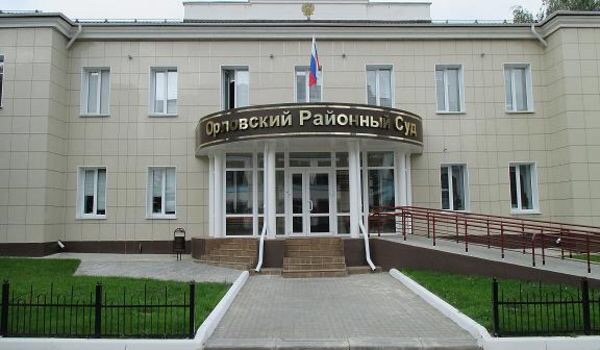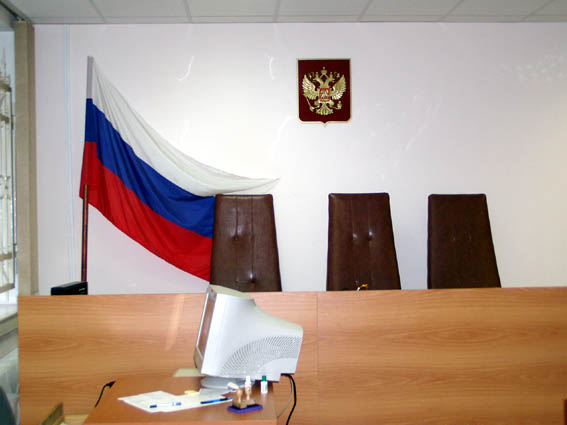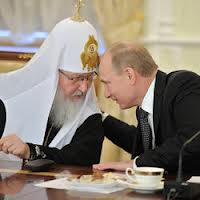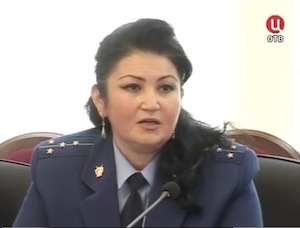RUSSIA: Jailed for exercising freedom of religion or belief in public
 Friday, May 1, 2015 at 11:10AM
Friday, May 1, 2015 at 11:10AM 
Baptist pastor Pavel Pilipchuk completed a five-day prison term on 18 April, fellow Council of Churches Baptists told Forum 18 News Service from the Russian city of Orel on 1 May. He was punished by an Orel court for refusing to pay a fine he insists was unjustly imposed for allegedly organising an open-air meeting for worship without informing the city administration beforehand. He had been fined about two weeks' average wages in August 2014 – a fine later doubled for non-payment.
"Half the fine has now been removed from him, as if he had paid it," Baptists told Forum 18. "20,000 Roubles for five days' imprisonment! But the original 20,000 Roubles remains. He'll continue to appeal against this."
Exercising freedom of religion or belief in public spaces continues to attract hostile attention from law enforcement agencies, often leading to administrative prosecutions and five-figure fines. Legal amendments were introduced in October 2014 in an attempt to clarify where religious ceremonies may be freely held and to specify that not all events require prior notification of the authorities (see F18News 2 March 2015 http://www.forum18.org/archive.php?article_id=2044).
Judging by court verdicts from early 2015, however, these changes have as yet had little apparent effect, Forum 18 has found. A total of 13 individuals – nine Jehovah's Witnesses and four Muslims – are known to have been fined since the beginning of 2015 for holding public religious events, Forum 18 notes. Unsuccessful attempts were made to punish three more – two Jehovah's Witnesses and one Protestant.
Hopes unfulfilled
It had also previously been hoped in Russia that the legal requirements for public events under the Code of Administrative Offences' Article 20.2 would be leniently interpreted, after a December 2012 Constitutional Court ruling responding to two complaints from Jehovah's Witnesses (see F18News 15 August 2013 http://www.forum18.org/archive.php?article_id=1865). But these hopes were not fulfilled as prosecutions and convictions continued (see eg. F18News 2 December 2013 http://www.forum18.org/archive.php?article_id=1902).
Religious communities whose beliefs require them to share their beliefs in public, beyond the confines of a place of worship, are particularly vulnerable to prosecution under Administrative Code Article 20.2. The majority of cases which reach court target Jehovah's Witnesses, although, as Pilipchuk's case shows, Baptists and Evangelical Protestants have also been charged (see F18News 2 March 2015 http://www.forum18.org/archive.php?article_id=2044).
Article 20.2
Administrative Code Article 20.2 is linked to the 2004 Demonstrations Law and punishes the "violation of the established procedure for organising or conducting a gathering, meeting, demonstration, procession or picket". Its eight parts cover a variety of "offences", but only Parts 1, 2, and 5 are known by Forum 18 to have been used against people who exercise freedom of religion or belief (see eg. F18News 13 September 2012 http://www.forum18.org/archive.php?article_id=1742).
Between the beginning of 2015 and late April, Forum 18 knows of 10 such cases involving people who exercise freedom of religion or belief (see below).
In June 2012 penalties under Article 20.2 for violating the Demonstrations Law were massively increased (see Forum 18's general Russia religious freedom survey http://www.forum18.org/Archive.php?article_id=1722).
Article 20.2 Parts 1 and 5 cover general violations of the "established order" of public events and complement each other, the former focusing on organisers, the latter on other participants. Conviction under Parts 1 and 5 brings a fine of 10,000 to 20,000 Roubles or compulsory labour for up to forty hours. Officials of organisations may also receive a fine of 15,000 to 30,000 Roubles under Part 1, and organisations themselves may be fined 50,000 to 100,000 Roubles.
Part 2 specifically targets the holding of events without formally notifying the authorities in advance. For individuals, this carries a fine of 20,000 to 30,000 Roubles, compulsory labour of up to forty hours, or detention for up to ten days. Officials may be fined 20,000 to 40,000 Roubles, and organisations 70,000 to 100,000 Roubles.
These are substantial fines when compared with the current average wage in Russia (42,136 Roubles per month in December 2014, 30,929 Roubles per month in January 2015) and especially with the average pension (10,029 Roubles per month in 2014). Those prosecuted under Article 20.2 are often elderly Jehovah's Witnesses. Judges sometimes acknowledge this by reducing fines for pensioners.
Penalties incurred under Article 20.2 can present "serious financial difficulties" for pensioners and the poor, Jehovah's Witness spokesperson Ivan Belenko told Forum 18 on 29 April. He added that other Jehovah's Witnesses usually step in to help.
Baptist pastor imprisoned
On 13 April, Judge Inna Maltseva at Magistrates' Court No. 2 in the Northern District of Orel sentenced Baptist pastor Pilipchuk to five days' administrative arrest. Earlier that day, he had again refused to pay the fine imposed by the city's Soviet District Court eight months before, maintaining his innocence of the original "offence". After sentencing, Pilipchuk was immediately taken into custody at a police detention centre.
Judge Maltseva had already doubled Pilipchuk's fine to 40,000 Roubles on 22 December 2014 for reasons of non-payment.
A spokeswoman for Magistrates' Court No. 2 told Forum 18 on 29 April that Pilipchuk had still not paid the fine.
Soviet District Court had fined Pilipchuk 20,000 Roubles on 11 August 2014 for allegedly organising an open-air worship service without notifying the authorities. Orel Regional Court rejected his appeal on 29 September 2014 (see F18News 2 March 2015 http://www.forum18.org/archive.php?article_id=2044).
Pilipchuk was charged as responsible for a group of Orel Baptists who marked Palm Sunday (23 March) 2014 by gathering outdoors to sing hymns and hand out Christian literature: "The evangelism went well, people listened attentively, nobody interfered, and the police were not present".
Baptists claim that Pilipchuk was not present at the event and was not responsible for it. In court, however, witness statements from members of the congregation were disregarded as they were judged to be "interested parties".
According to the court verdict, seen by Forum 18, the outdoor meeting for worship presented "the possibility of danger to public order, morality and health, both to the participants of the religious event themselves, and to third parties, which requires public authorities to take measures to ensure public order and the security and peace of citizens". The verdict also indicated that police officers testified that members of the public had called and expressed their "negative reaction" to the event and their intention to prevent it, "including by active intervention".
The verdict was reached despite a 2007 ruling by the European Court of Human Rights (ECtHR) in Strasbourg in a similar case. The ECtHR unanimously ruled that the Russian authorities are obliged to uphold religious communities' right to hold such public meetings, even if there is opposition from some. The case was brought by Protestant Pastor Petr Barankevich of the Christ's Grace Evangelical Church after his Church was banned from meeting for worship in a public park (see F18News 1 August 2007 http://www.forum18.org/archive.php?article_id=1001).
The telephone at the Orel regional Prosecutor's Office chancellery (responsible for the documentation of cases) went unanswered whenever Forum 18 called on 28 and 29 April.
 Orel,
Orel,  Pavel Pilipchuk,
Pavel Pilipchuk,  Russia
Russia 


